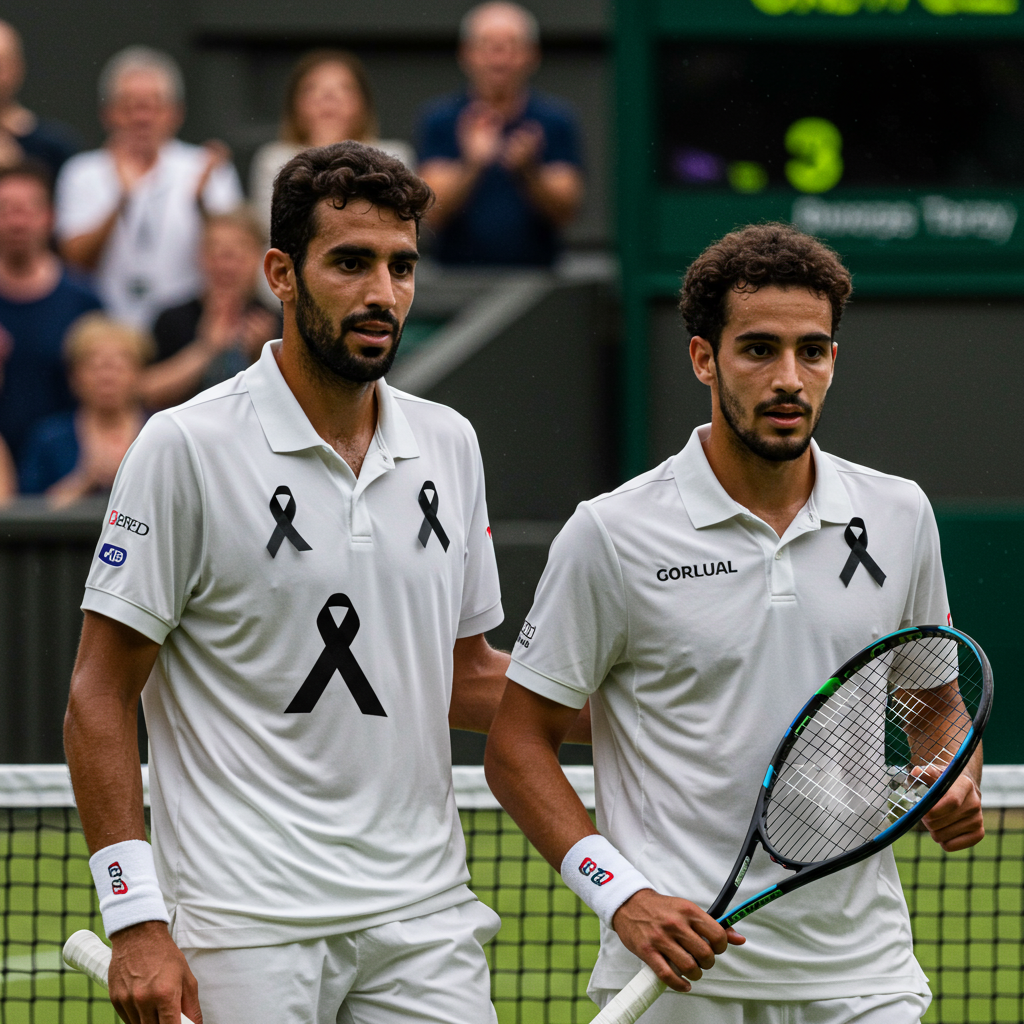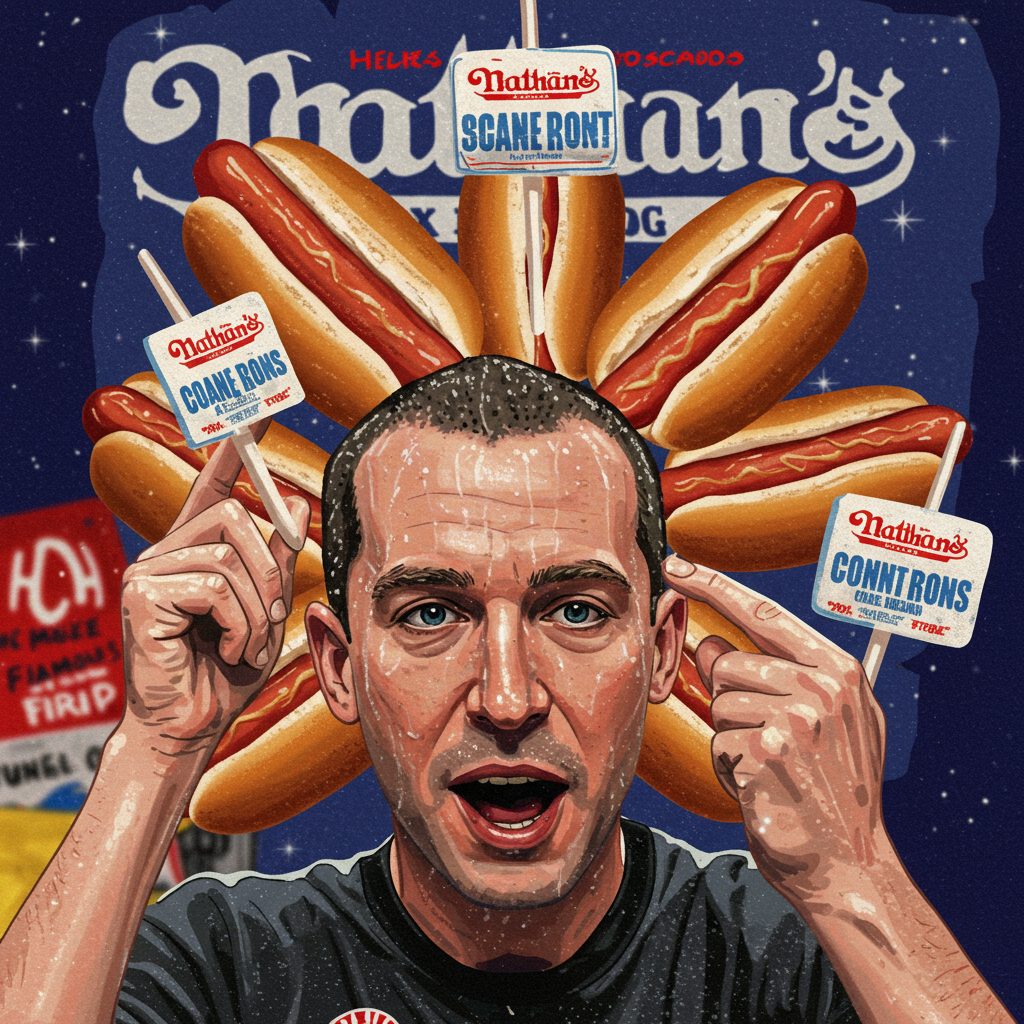In a rare departure from its famously stringent all-white clothing rule, Wimbledon officials granted special permission to Portuguese tennis players to wear black ribbons. This exception allowed Francisco cabral and Nuno Borges to pay a poignant tribute to the late Liverpool and Portugal football star Diogo Jota, who tragically died in a car crash in Spain on Thursday morning at the age of 28. The gesture highlights the impact of Jota’s death felt across the sporting world and the willingness of even the most traditional institutions to bend rules for heartfelt expressions of grief and respect.
A Rare Exception at SW19
Wimbledon’s all-white dress code is one of the most iconic and strictly enforced regulations in professional sports. Players are required to wear almost entirely white clothing, including caps, socks, and wristbands. Even small splashes of color are typically disallowed. Exceptions to this rule are virtually unheard of, making the approval for Portuguese players to wear black ribbons a significant moment demonstrating empathy in the face of tragedy. The All England Lawn Tennis Club (AELTC), which hosts the tournament, confirmed the decision came after players requested a way to honor Jota.
Honoring a National Hero
Diogo Jota was a highly respected figure in Portuguese football and a key player for Premier League club Liverpool. His sudden death, alongside his brother André Silva, aged 25, sent shockwaves through the sports community globally. Jota was not only admired for his skill on the pitch but also described by those who knew him, including compatriot Francisco Cabral, as an “inspiration,” “idol,” “icon,” and “good person.” Tributes poured in from clubs, players, and fans worldwide, underscoring his widespread influence. Jota had recently married and was a father of three, adding to the profound sadness surrounding his passing.
The Players’ Request and Wimbledon’s Response
Portuguese doubles player Francisco Cabral, ranked 40th in the world, was among the first to seek permission to wear a tribute. He heard the devastating news about Jota while traveling to Wimbledon. Cabral initially hoped to wear a black armband or strap during his matches. However, he was informed that this would not be permitted under the tournament’s strict regulations. Determined to honor Jota, Cabral then inquired about wearing a small black ribbon instead. He secured approval from the Referee’s Office, a decision confirmed by the AELTC.
A Symbol of Respect Allowed
The AELTC issued a statement acknowledging their flexibility in this specific instance. “We are always open to having conversations with players regarding such matters,” the AELTC said, “and given the tragic circumstances, the Referee’s Office has approved the players wearing a black ribbon as a mark of respect and condolence.” This statement underscores the extraordinary nature of the situation that led to the rule relaxation. Wearing the ribbon was a deeply personal gesture for Cabral. He described it as an “honor,” explaining that Jota’s accomplishments meant so much to Portugal and served as an inspiration to him and the entire country. He hoped the tribute might offer even a small degree of comfort to Jota’s family.
Nuno Borges Joins the Tribute
Following Cabral’s lead, fellow Portuguese player Nuno Borges also received permission to wear a black ribbon. Borges, who competed in the men’s singles draw, affixed his ribbon to his white cap during his third-round match. He too expressed his desire to honor Jota, calling him a “great footballer” and his death a “tragedy.” Borges had initially considered wearing a full red Portugal top as a more overt tribute but was told this was also not allowed under the dress code rules. Both players ultimately opted for the subtle yet powerful symbol of the black ribbon, demonstrating solidarity and national pride while adhering as closely as possible to Wimbledon’s traditional requirements.
The players’ matches at Wimbledon continued against this backdrop of mourning. Cabral and his Austrian partner Lucas Miedler won their first-round doubles match but were eliminated in the second round. Nuno Borges played a five-set match in the singles draw but ultimately lost to the No. 17 seed Karen Khachanov. Despite the outcomes on court, their act of wearing the black ribbons served as a public display of respect for a national hero lost too soon, resonating beyond the boundaries of the tennis world. The incident highlights how major sports events can sometimes make space for moments of genuine human emotion and connection, even within the confines of long-standing traditions.
Frequently Asked Questions
Why did Wimbledon make an exception to its strict all-white dress code?
Wimbledon allowed Portuguese tennis players Francisco Cabral and Nuno Borges to wear black ribbons as a special mark of respect and condolence. This rare exception was granted following the tragic death of Portuguese football star Diogo Jota, who died in a car crash in Spain shortly before the tournament matches took place. Officials acknowledged the tragic circumstances necessitated a degree of flexibility.
Which Portuguese tennis players paid tribute to Diogo Jota at Wimbledon?
Portuguese tennis players Francisco Cabral, who competed in men’s doubles, and Nuno Borges, who played in men’s singles, were the players granted permission to wear tributes to Diogo Jota. Both players wore small black ribbons during their respective matches on Friday after securing approval from tournament organizers.
What specific tribute were players allowed to wear under the relaxed dress code?
While players initially requested permission to wear black armbands or straps, Wimbledon’s Referee’s Office ultimately approved the wearing of a small black ribbon. Francisco Cabral wore his ribbon on his shirt sleeve, while Nuno Borges affixed his black ribbon to his white cap. This was a compromise from the players’ initial requests and a significant deviation from the typical all-white requirements.




